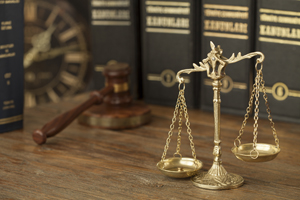Dylann Roof has been convicted of murder for shooting nine black church parishioners in Charleston, South Carolina last year. Throughout the trial, prosecutors relied on a parade of expert witnesses to definitively connect Roof to the mass shooting and demonstrate that he was motivated by racial hatred. Roof faces a sentencing hearing in the coming weeks, and has announced through his attorneys that he will not use psychology expert witnesses to reduce his punishment.
Dylann Roof Convicted of Charleston Mass Murder
On June 17, 2015, Dylann Roof opened fire in a Charleston church during a prayer service and murdered nine black parishioners in a racially motivated mass shooting. After a brief manhunt, Roof was arrested and charged with 33 federal hate crimes when it became clear that he was a white supremacist who targeted the church with hopes of igniting a race war. In November of 2016, Roof was declared competent to stand trial, and the federal proceedings began in early December.
After a week-long trial, jurors needed only two hours to convict Roof of all 33 federal charges levied against him. Prosecutors built a meticulous case against the defendant, using not only his confession shortly after his 2015, but a collection of expert witnesses who evaluated the evidence and fortified the state’s case. Of the 33 charges, 18 carry the possibility of a death penalty, and prosecutors paid careful attention to developing a case which would not be questioned should Roof be sentenced to death during the next phase.
Prosecutors Use Expert Witnesses to Convict Dylann Roof
Early in the Dylann Roof trial, prosecutors called a GPS expert witness to support their claim that the defendant had been targeting the Mother Emanuel Church prior to his attack. J.D. Krull told jurors that the defendant’s GPS data indicated he visited Mother Emanuel at least three times prior to the June 17th shooting, suggesting that Roof premeditated his attack and planned his route. Prosecutors also called a ballistics expert witness to connect the .45-caliber Glock pistol that Roof purchased shortly before the shooting. Firearms expert witness James Green testified that investigators found 74 shell casings and dozens of bullet fragments at the scene which were connected to Roof’s gun.
Prosecutors also called FBI expert witnesses to discuss the defendant’s hate-filled manifesto which detailed his racial hatred of Hispanics, Jewish Americans, and African Americans and announced his intention to take violent action. FBI experts used information contained on USB drives found in Roof’s car which contained graphic images and racist content to show jurors that the defendant had engaged in a premeditated hate crime targeting black worshipers. FBI agent Tracy Sicks testified that Roof maintained a racially charged website which detailed his manifesto and the plan for the attacks on Mother Emanuel Church.
Prosecutors concluded their use of expert witnesses by having medical experts testify to the condition of the bodies and the cause of death. Jurors were shown graphic images of the crime scene and told by expert witnesses that the victims suffered multiple gunshot wounds consistent with the prosecution’s theory of a racially motivated hate crime.
Dylann Roof will not Call Psychology Expert Witnesses during Sentencing
Although he faces the death penalty for his conviction, Roof announced that he does not plan on calling psychology expert witnesses in an effort to avoid execution by explaining his pathology. During death penalty sentencing phases, prosecutors are charged with presenting aggravating circumstances which support execution while defendants are given the opportunity to present evidence of mitigating factors which can be used to reduce the sentence to life in prison. Attorneys for Dylann Roof have made it clear they intend to call mental health expert witnesses who could argue that the defendant suffers from paranoid schizophrenia, however, Roof recently submitted documents to the court which indicate he does not intend to use psychologists during the sentencing phase.
Following his conviction, the 22-year-old Roof formally requested that he serve as his own counsel for the duration of the trial, and denied the need for mental health expert testimony. A journal found in Roof’s car following his arrest indicated that the defendant was “morally opposed” to psychology because he says it is a “Jewish invention that does nothing by invent diseases and tell people they have problems when they don’t.” Dylann Roof has until January 3rd to change his mind about representing himself, and it is possible he will rehire his defense team and allow them to use a mental health expert to testify to mitigating circumstances. It is also possible that the judge will decide Roof lacks the mental capacity to act as his own lawyer even if he was competent to stand trial.




